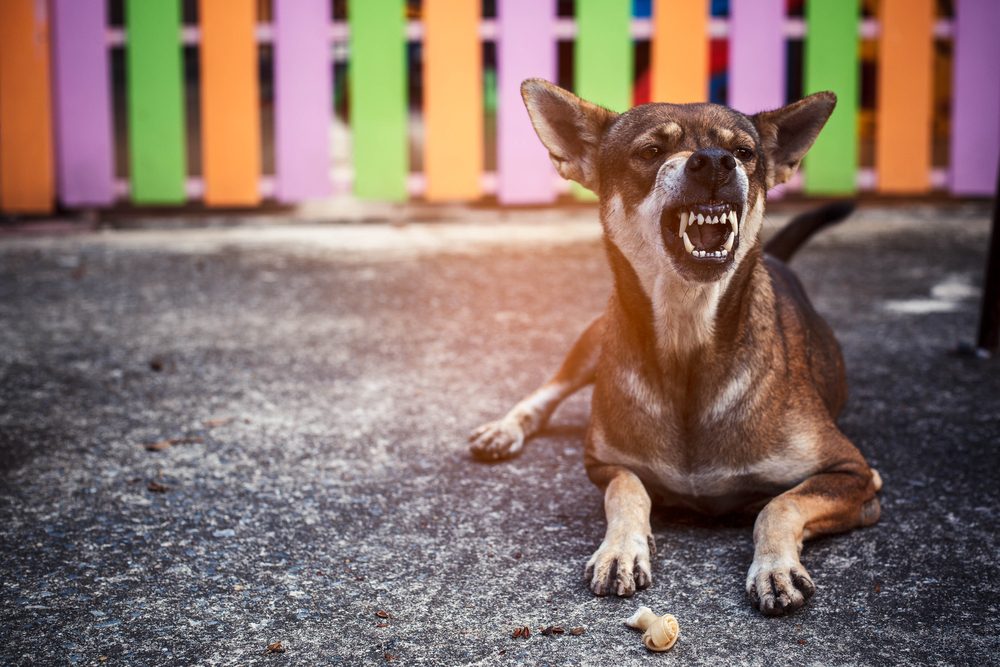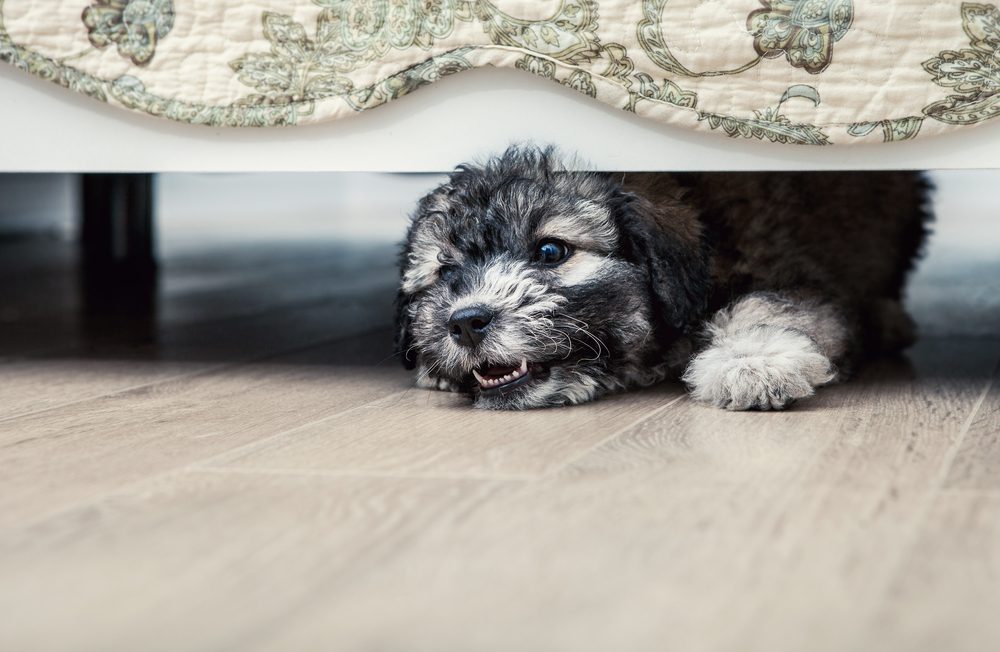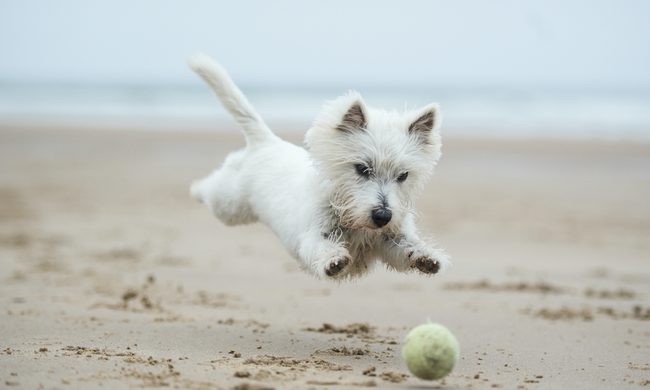Almost nothing makes the hair on the back of your neck stand up faster than hearing the low, menacing growl of a dog. Whether it comes from an unfamiliar dog you meet unexpectedly or from your own furry family member, the sound is unsettling and, often, more than a little terrifying.
You’re wise to be wary, but you don’t need to be terrified. While a growling dog may seem menacing, that’s not always the case. In fact, dogs growl for a variety of reasons — it’s part of the way they communicate. The key is to understand what a dog’s growl means so you can respond appropriately.

Why do dogs growl?
As a dog owner, you’re probably deeply familiar with the different types of barks your dog emits. Some can be demanding (like at dinnertime), while others are playful or intended to alert you (like when bunnies hop into the yard uninvited). Dog growls are similar. It’s simply part of their language. Here are some common types of dog growls and what you should do when you hear them.
The aggressive growl
For most, this is the first thing that comes to mind when they hear a dog growl — and one of the most frightening. You can tell whether your instincts are correct by looking at the dog’s posture. If his fur is raised and he is crouched low or lunging, you can assume the loud growls you hear are an expression of dominance and power.
What to do: If it’s not your dog, back away slowly. If it is your dog, determine what is causing this reaction and remove your dog from the situation immediately. Since this type of behavior can ultimately cause injury to others, seek advice or training from a pet professional.

The warning growl
If you’ve invaded a dog’s territory and you hear a low, rumbling growl, it might be his polite way of asking you to leave him alone. Sometimes this sound is barely audible, but you can usually tell what he means by his stiff body posture.
What to do: Pay heed, for sure, but also look for the reason behind the behavior. In this case, he may be feeling threatened, fearful, or possessive. Once you understand why he is growling, you can rectify the situation. If you notice this behavior increasing, consult a trainer for tips on how to reduce your pup’s anxiety.
The frustrated growl
You may have heard this type of growl from your dog when you’re late fixing his dinner or he wants to go outside and play. This growl isn’t nearly as low as some of the others and may sound more bossy or manipulative than threatening.
What to do: This type of growling can become problematic, especially around others who don’t understand your dog’s way of “talking.” Obedience training can help curb this nasty habit. (After all, patience is a virtue, regardless of whether we’re human or canine.)
The growl of pain
If your dog growls when you touch him or when you approach to pet him, he may be in pain. This can sound a lot like a warning growl, especially if he has an illness or injury and wants to be left alone.
What to do: If you suspect your dog may be sick or injured, don’t delay. Seek immediate veterinary care. If it isn’t obvious why he’s hurting, you need professional help to find out exactly what’s wrong.
The playful growl
You’ve probably heard this kind of growl while playing a friendly game of tug-of-war with your pup. With tail wagging and feet firmly planted, he’s fully engaged in doing his best to win the toy from your hand just so he can bring it back and go another round.
What to do: Enjoy the game but be mindful of his behavior. If the growling becomes more intense or he becomes aggressive, stop the game and take a break for a while just to make sure he knows who’s in control.
The affectionate growl
If you’re petting your dog and he begins to growl softly, he may just be content. Some canines make a soft growling noise that sounds a bit louder than a cat’s purr when they are receiving affection. You can tell the difference between an affectionate growl and a warning growl by your dog’s body language. If he’s relaxed — maybe on his back with his legs in the air begging for a belly rub — it’s most likely a growl of affection.
What to do: Keep petting him! According to a study conducted by scientists at Washington State University, petting a dog for just 10 minutes a day lowers your heart rate, relieves tension, and reduces stress. Knowing that your dog is receiving a similar benefit is even more reason to relax and enjoy the moment.
Your dog can growl for many reasons. The first step is to identify the underlying cause of this behavior. Once you do, you’ll know what actions to take to make your four-legged friend feel better.



